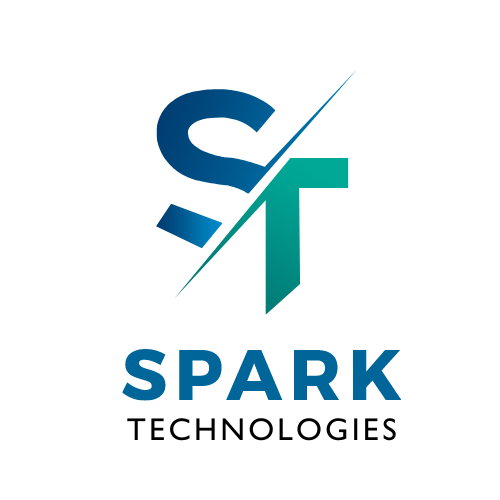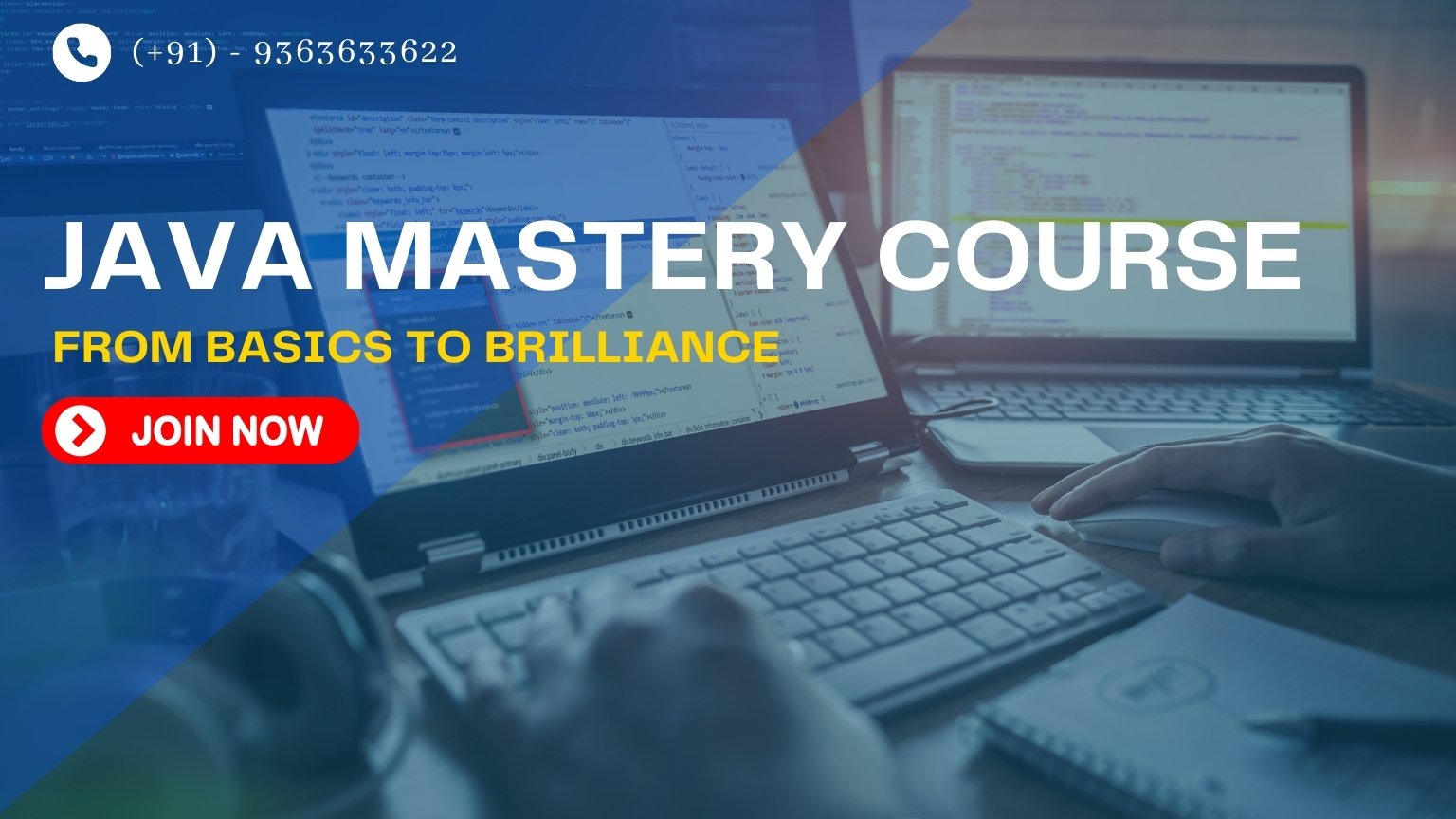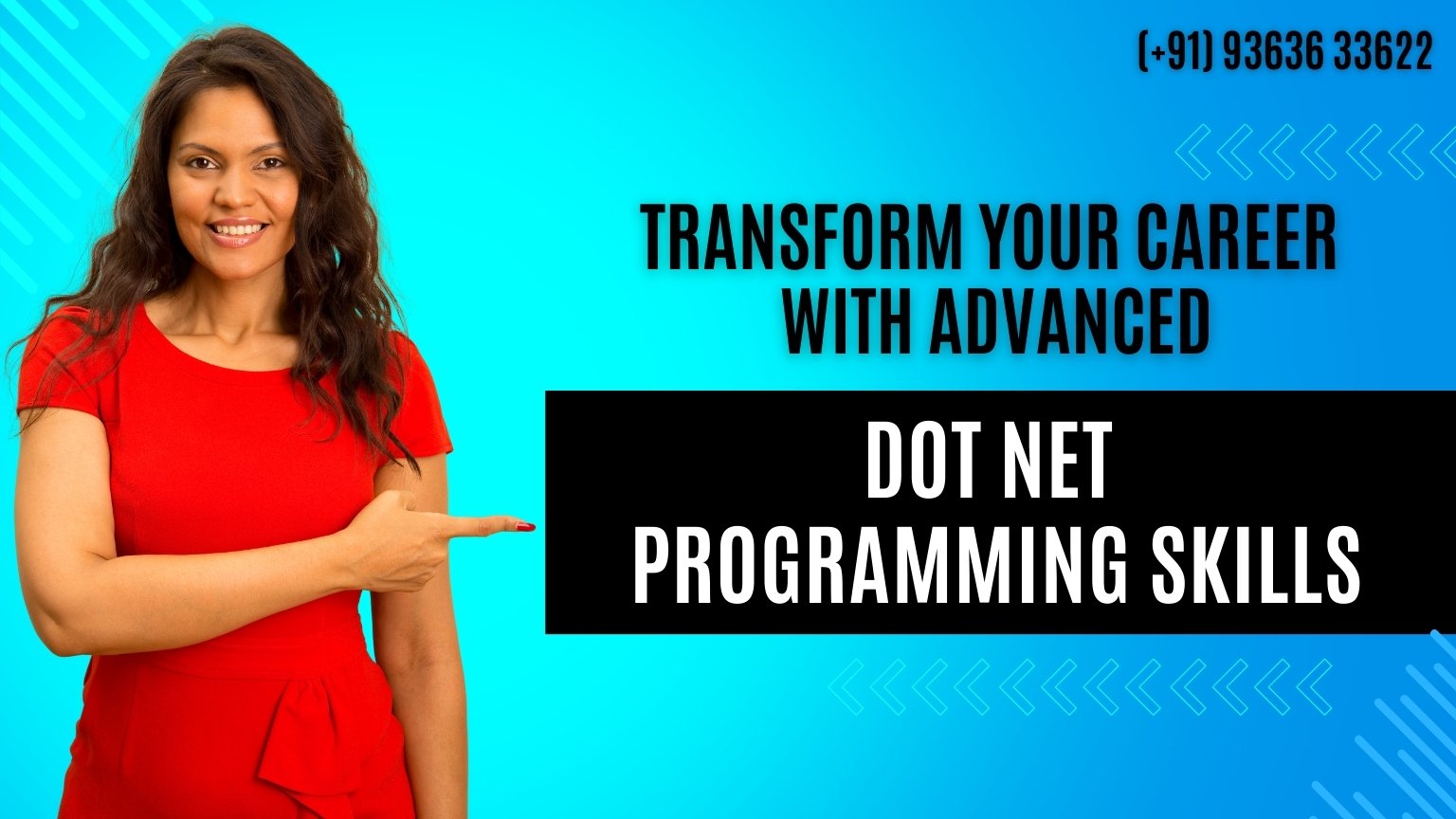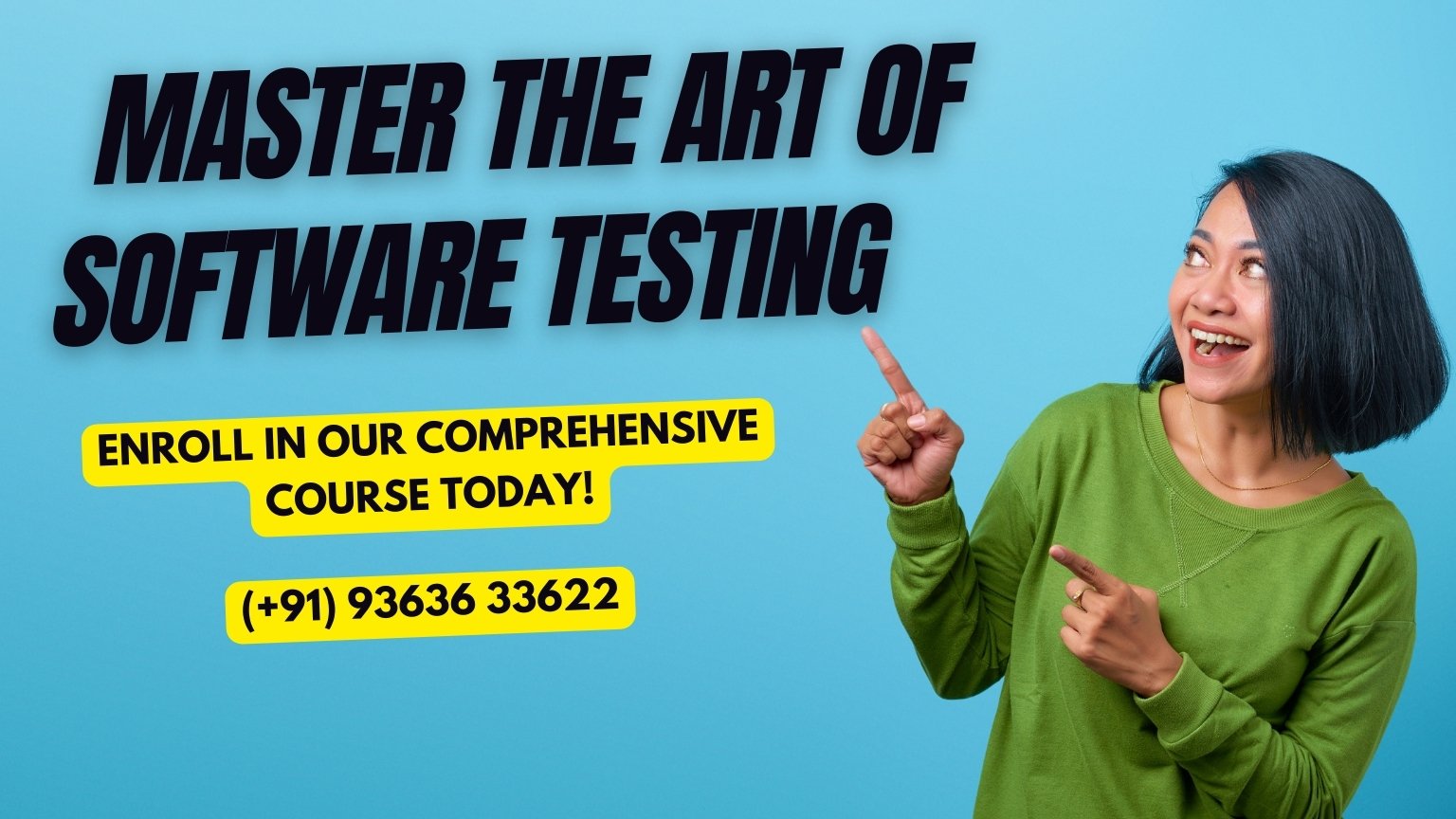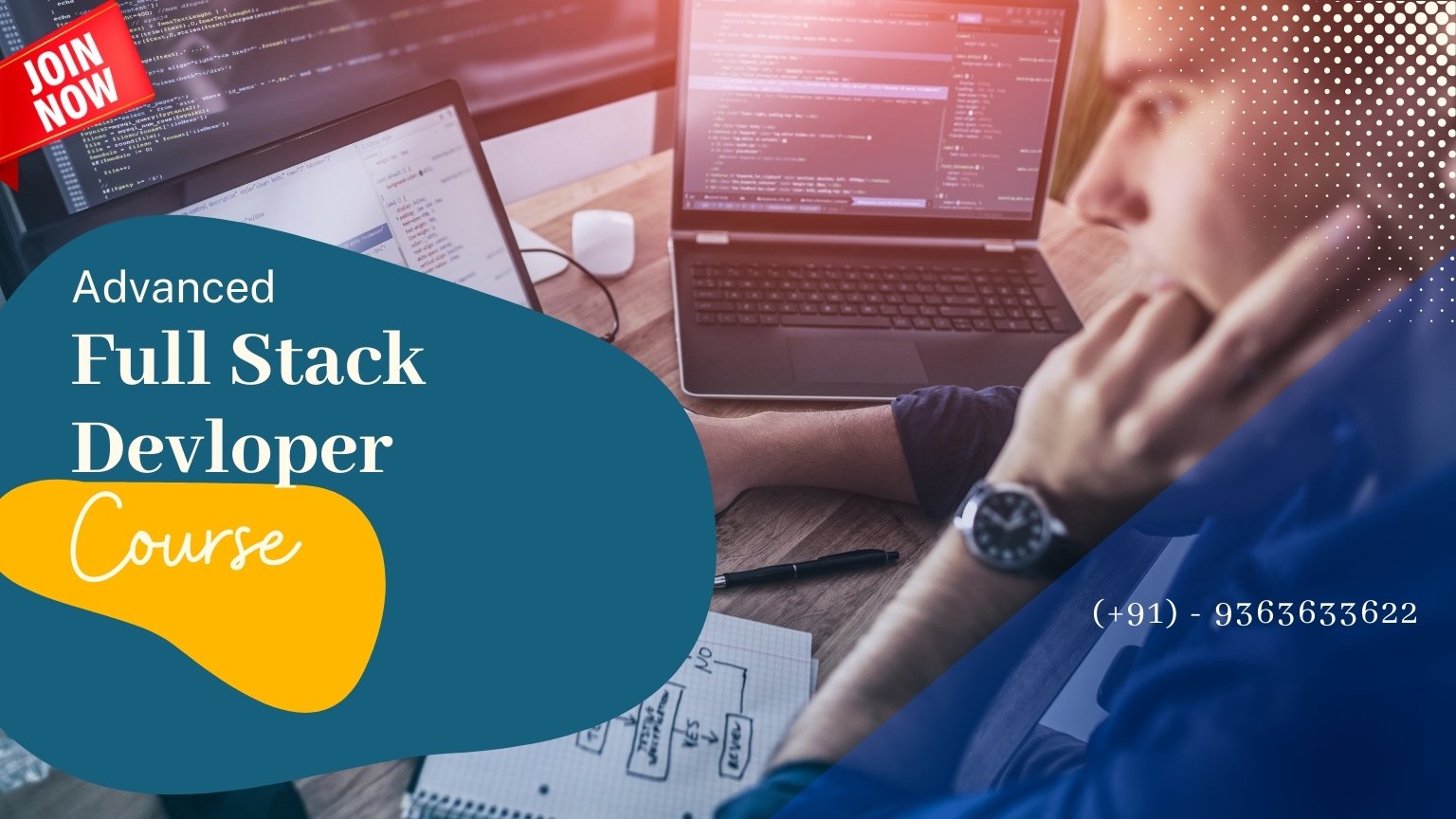
Full Stack Developer Course in Chennai
About Course
Spark Technologies provides a Full-Stack developer Course at nominal fees in Chennai. We are the best Full-Stack Developer training Institute in Chennai. Our experts train the students and place them in top companies with high salaries.
Course Highlights
- ✔ The full stack developer course at Spark Technologies in Chennai offers a comprehensive curriculum covering a Java full stack with angular or react, python full stack with angular or react, Dot net full stack with angular or react, PHP full stack with angular or react, MEAN stack and MERN stack.
- ✔ Industry experts design the course to give equal emphasis to frontend, backend and database technologies.
- ✔ Spark Technologies implements blended learning for the full stack training, allowing students to practice programming languages hands-on for holistic learning expertise.
- ✔ Flexible batch timings are available for weekend, weekday and fast-track courses.
- ✔ Upon completion, practices receive 100% placement assistance, with Spark Technologies having tie-ups with numerous companies, ranging from small to medium scale, where full-stack developers are in high-dream careers.
- ✔ Spark Technologies active placement cell helps students secure high-paying opportunities for their dream career.
- ✔ The full stack courses at Spark Technologies are structured to be affordable for all aspiring full stack developers.
Full Stack Developer Course Objectives
- ✔ Gain fundamental knowledge in web development, including HTML, CSS, and Javascript.
- ✔ Learn front-end development using Angular or React.
- ✔ Explore back-end development with Java, python, node.js, PHP, or DotNet.
- ✔ Learn database management with MySQL, MS SQL, or MongoDB.
- ✔ Engage in real-time capstone projects like developing an E-Commerce website or food delivery web application for particle application.
Course Syllabus
Core Java Programming
- Introduction to Java
- Data Types
- Operators
- Variables
- Methods
- Object
- Constructors
- Strings
- Java Beans
- Arrays
- Inheritance
- Abstraction
- Abstraction using abstract classes
- Abstraction using interfaces
- Encapsulation
- Interfaces
- Polymorphism
- Exception Handling
- Collection Framework
- Generics
- Casting
- File Handling
- Serialization
- Threads
- Inner Classes
Java Enterprise Edition (JEE)
- Overview of J2EE and WWW
- The HTTP Protocol and Web Application Introduction
- Environment Setup
- HTML
- Servlets
- Java Server Pages (JSP)
- MVC Architecture
- JDBC
Spring and Spring Boot Framework
- Spring: Introduction
- Spring: Core Container
- Components of Spring Core
- Spring: Data Access and Integration
- Spring: Web Layer
- Spring: Aspect Oriented Programming (AOP)
- Spring: Security
- Spring: Boot
TypeScript Framework
- Introduction to TypeScript
- Advantages of TypeScript
- Overview of Node and Node Environment Setup
- Installing and Configuring TypeScript Engine
- Understanding Transpilation
TypeScript Variables and Data types
- Declaring and Defining Variables
- About "any"
- "var" Vs "let" keywords
- Static and Dynamic Type
- Data types: String, Number, Array, Object, Tuple, Enum, Void and NULL
OOPS in TypeScript
- Defining Class and Creating Objects
- Property, Methods and Constructors
- Handling Inheritance
- Types of Inheritance in TypeScript
- Understanding Access Modifiers
- Static Methods in TypeScript
- Understanding Interfaces in TypeScript
Programming with Angular
- Introducing Angular
- Angular – Environment Setup
- Angular Modules
- Angular Components
- Angular – Data and Event Bindings
- Angular Directives and Custom Directives
- Angular Pipes
- Angular Services and Dependency Injection
- Angular Routing and Advanced Routing
- Angular Template Driven Forms
- Angular Reactive Forms
- Angular Asynchronous Operations and Advanced HTTP
- Angular Authorizations
- Angular Animations
- Testing Angular Applications
- Angular Security and Internalization
- Angular Performance, Optimization and Deployment
- Real-Time Project with Angular
Programming in Python
- Introduction to Python
- List, Ranges, & Tuples in Python
- Python Dictionaries and Sets
- Input and Output in Python
- Python functions
- Python Object Oriented
- Python Exceptions Handling
- Python Regular Expressions
- Useful additions
Django Framework for Python
- Introduction
- Models layer
- View layer
- Template layer
- Forms
- Internationalization and localization
- Common web application tools
- Real-Time Projects
TypeScript Framework
- For detailed modules, refer to Java Full Stack with Angular
Programming with Angular
- For detailed modules, refer to Java Full Stack with Angular
MongoDB
- Introduction to MongoDB
- Installation and Configuration of MongoDB
- Fundamentals of MongoDB
- Working with Data - CRUD Operations
- Querying Collections
- Aggregation Operations
- Understanding Data Models and Schema
- Handling Transactions in MongoDB
- Handling Indexes in MongoDB
- Managing Security
- Replication
- Sharding in MongoDB
Understanding the Web
- Architecture of a Web Application
- Server Side Scripting
- Client Side Scripting
- Importance of Performance
Introduction to Node.js
- What is Node.js
- Advantages of Node.js
- Installing Node.js and Configuring Node.js
- Architecture of Node.js
- Appreciating the Performance of Node.js
- Understanding Event Driven code execution and Asynchronous Events in Node.js
- Understanding Event Emitters
Implementing Node.js
- The Node lifecycle
- Creating and running a Node Server
- Handling Requests and Responses
- Routing and Redirecting Requests
- Handling Streams, buffers and Events
- Handling Multi-processing in Node.js
- Handling Runtime Errors
Modules in Node.js
- Understanding Modules in Node.js
- Exploring various built-in Modules
- Third-party Modules for Node.js
- Introduction to Node Package Manager - NPM
- Understanding Global and Local NPM Packages
- Installing and Updating a Module
- Deleting a Module
- Introduction to various NPM Modules
Introduction to ExpressJS Framework
- Why the need for Express Framework
- Overview of ExpressJS framework
- Installing ExpressJS
- Understanding Request and Response Objects
Exploring ExpressJS
- Configuring ExpressJS
- Understanding Middleware
- Understand How Middleware Works in ExpressJS
- Add a Middleware
- Creating Custom Middleware
- Handling Requests and Responses
- Handling Routing
- Using ExpressJS Router
- Path Filtering
- Creating and Serving HTML Pages
- Using Jade Templates
- Navigating Datasets
- Using REST in ExpressJS
- Handling POST
- Handling JSON data
- Handling Errors
TypeScript Framework
- For detailed modules, refer to Java Full Stack with Angular
Programming with Angular
- For detailed modules, refer to Java Full Stack with Angular
- INTRODUCTION TO .NET FRAMEWORK 4.5
- VISUAL C#.NET
- ASP.NEt
- DO .NET CONCEPTS
- ASP.NET MVC (Model, View and Controller)
- MICROSOFT SQL SERVER
TypeScript Framework
- For detailed modules, refer to Java Full Stack with Angular
Programming with Angular
- For detailed modules, refer to Java Full Stack with Angular
Web Designing
- HTML
- Introducing HTML 5
- Introducing CSS and CSS 3
- Simplifying CSS with BootStrap
- Javascript
- Jquery Framework
Creating, Managing and Mastering MySQL
- MySQL Database
Developing Web Applications using PHP
- Introduction to PHP
- Basics of PHP
- Control Structures of PHP
- Functions in PHP
- User Defined Functions in PHP
- File Handling in PHP
- Handling Forms in PHP
- Accessing MySQL with PHP
- Sessions and Cookies
- Using Emails for Form Submission in PHP
Laravel Framework with PHP
- Laravel for PHP
- Installation and Architecture
- Laravel Component - Routes
- Laravel Component - Controllers
Full Stack Developer Course Trainer Profile
✔ The instructors at Spark Technologies are seasoned professionals. Each specializes in various aspects of full-stack development, including frontend, backend, Angular, React, and more.
✔ Our trainers have extensive experience training students at Spark Technologies, providing hands-on training in client-side and server-side programming.
✔ Throughout the training, our trainers enhance your skills in the web development process by introducing you to industry-relevant frameworks like MEAN stack and MERN stack.
✔ They also prepare you for employment by offering valuable insights into interview questions and conducting mock interviews.
Features of Full Stack Web Developer Training in Chennai at Spark Technologies
Real-Time Experts as Trainers:
At Spark Technologies, learn from industry experts who are passionate about sharing their knowledge and receive personalized mentoring from them.
Live Project:
Gain hands-on experience by working on real-time projects, showcasing your skills, and increasing your chances of being hired.
Certification:
Purchase your certificate from Spark Technologies and prepare to pass global certifications. Many students from our Spark Technologies pursue global certifications with a 100% success rate.
Affordable fees:
Get the best and quality course at an affordable price, and have the option to pay the fees in installments.
Flexibility:
At Spark Technologies, you can enjoy unparalleled flexibility. Choose between classroom or online training, early morning or late evening, weekdays or weekends, and regular packs or fast track, based on what suits you best.
Placement Support:
Spark Technologies has partnered with numerous companies to provide students with opportunities to kick-start and set up their careers.
Why Learn the Full Stack Developer Course in Chennai at Spark Technologies?
Spark Technologies offers the best standard entire stack developer course in Chennai. We are the best Full Stack Developer training institute in Chennai. Here, we have experienced professionals to guide and train the students.
We have placed many students in top companies and earned them high salaries. We have 100% placement assurance to the students. Our motto is to offer quality and premier courses to the students at an affordable price. You can reach us at 9965188111 or 9363633622 or mail us at admin@spark-technologies.in
Full Stack Developer Certification Training in Chennai
Upon completing the Full Stack Developer Course at Spark Technologies in Chennai, students are awarded a certificate of completion. This credential is valuable as it demonstrates proficiency in web development, indicating a deep understanding of the subject. Since there are no official certifications for Full Stack Development, this certificate holds significant weight.
Additionally, the certification from Spark Technologies is globally recognized, further enhancing its value. Including this certificate with your resume when applying for jobs can significantly benefit you. Employers are likely to prioritize your profile during the interview process, opening up numerous career opportunities.
The Full Stack Certification Course at Spark Technologies in Chennai is designed to equip you with the necessary skills and knowledge to become a competent full-stack developer.
Full Stack Developer Course Fees in Chennai
The Full Stack Developer Courses fees vary depending on their place, academy, courses, and more. Generally the full stack developer course fees range from Rs 45,000 to Rs 2,20,000. You can get the best full stack course at an affordable price from Spark Technologies in Chennai.
Placement Session & Job Opportunities after completing Full Stack Development Training in Chennai
As technology advances, businesses are increasingly focusing on developing software solutions to meet their customers’ evolving needs. This has led to a growing demand for Full Stack Developers who have the skills to handle both front-end and back-end development.
Start-up companies, in particular, often hire Full Stack Developers to build their own applications as well as those for their clients, helping them leverage costs effectively.
However, the demand for Full Stack Developers extends beyond start-ups to medium-sized companies and large MNCs.
These developers possess various skills that can benefit companies in multiple ways, making them highly sought after. Spark technologies ensure that students are well-prepared to take advantage of the many opportunities available in the field of Full Stack Development.
FAQs
Learn Full Stack Development for versatile skills, career growth, and the ability to build complete, innovative web applications.
A basic understanding of programming, HTML, CSS, and JavaScript is required; familiarity with databases and web development concepts is recommended.
The duration varies based on the program and format. Typically, it is 3-6 months for part-time courses and 12-18 weeks for full-time intensive courses.
Upon completion, you'll receive a certificate recognized by the industry, validating your skills as a Full Stack Developer.
Yes, Spark Technologies offers job placement assistance, connecting you with potential employers to kick-start your Career as a Full-Stack Developer.
You'll work on real-world projects, build web applications from scratch, and apply concepts learned in the Full Stack Developer Course.
Yes, the course content is regularly updated to align with current industry trends and advancements in Full Stack Development.
Yes, Spark Technologies provides study materials and resources to support your learning in the Full Stack Developer Course.
Yes, Spark Technologies offers assistance and guidance to help you prepare for Full Stack Developer certification exams.
Our Full Stack Developer Course in Chennai stands out for its comprehensive curriculum, expert instructors, industry-aligned projects, and career support.
You can enroll by visiting the Spark Technologies website, selecting the Full Stack Developer course, and completing the registration process online.
The Cost of full stack developers, from Rs 45,000 to Rs 2,20,000 and more, will vary depending upon the place, course, and academy.
In Chennai, Spark Technologies is the best and standard Full Stack Development Institute.
Yes, Full Stack Development is suitable for beginners as it provides a comprehensive understanding of web development technologies and practices.
Learning Full Stack Development can be challenging due to its breadth, but with dedication and practice, it's achievable for many.
Yes, with a focused approach, consistent effort, and a structured learning path, you can learn Full Stack Development in 6 months.
No news found!
- 1 Star0
- 2 Stars0
- 3 Stars0
- 4 Stars0
- 5 Stars0
